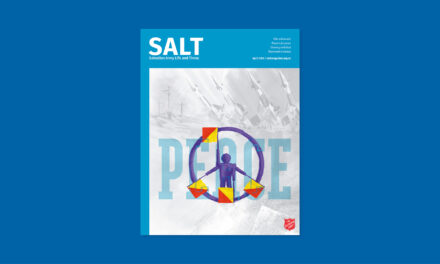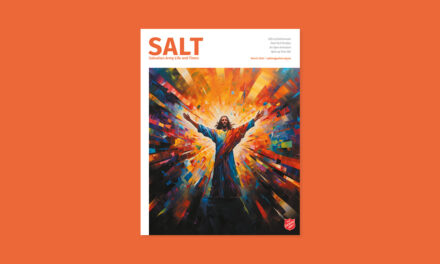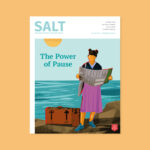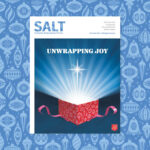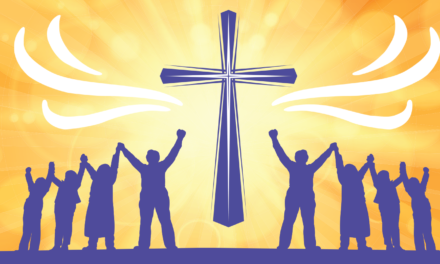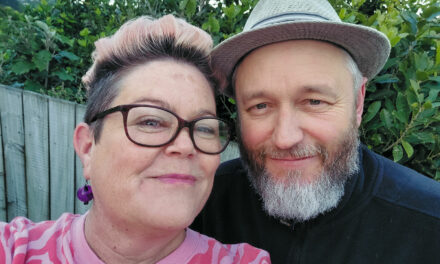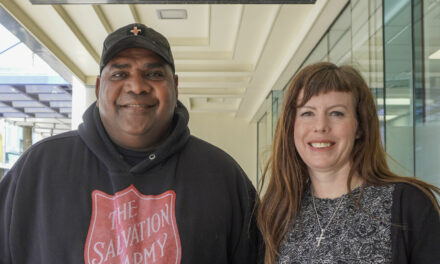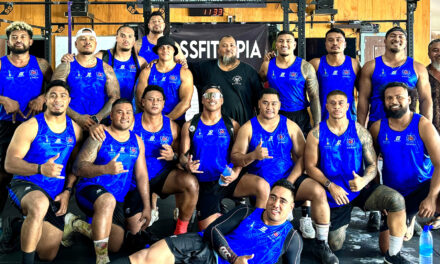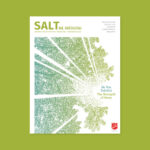
Season of Creation
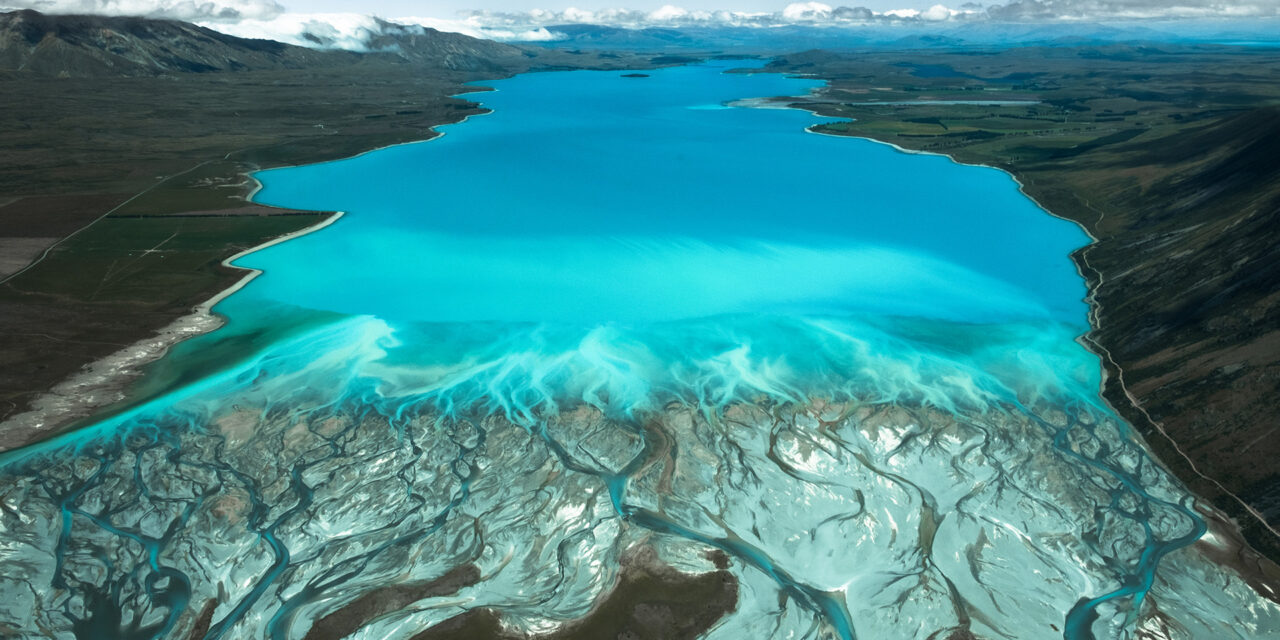
New Zealand has often been referred to as clean and green, however, there is much within our environment that no longer reflects this catch cry. As we acknowledge the ecumenical prayer and action initiative Season of Creation 2023, SALT highlights the ecological work being carried out across The Salvation Army.
The care of creation is vitally important, as our wellbeing is interwoven with the wellbeing of the earth. We are part of all that God has made, and he entrusted the care of the earth and everything in it to us as stewards and guardians.
This year’s theme for the Season of Creation is ‘Let Justice and Peace Flow’, with the symbol of a mighty river based on Amos 5:24—‘But let justice roll on like a river, righteousness like a never-failing stream!’ We are called to join this river of justice and peace, to take up climate and ecological justice and to speak out with and for communities most impacted by climate injustice and the loss of biodiversity.
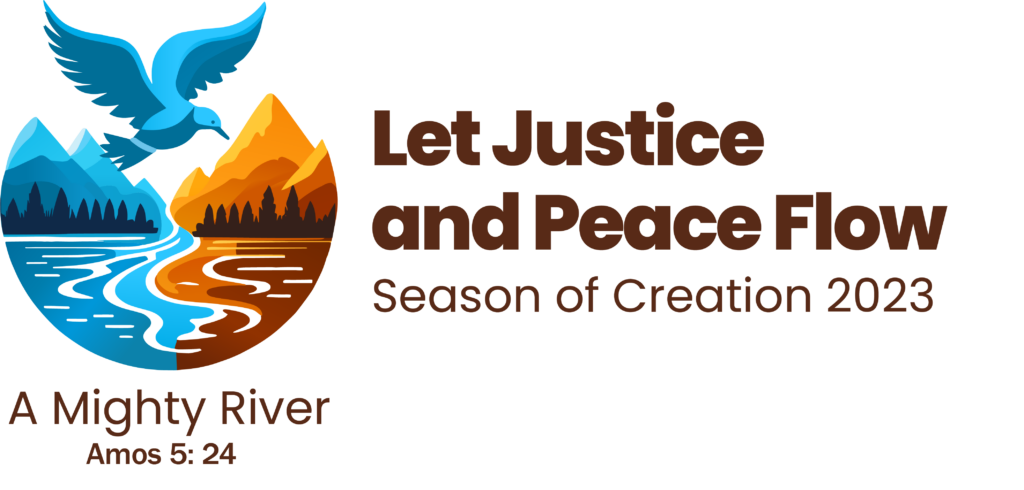
Helping our Salves
Captain Mike Bryan is the Chair of the NZFTS Salvation Army’s Environmental Sustainability Working Group, also known as Salves. Salves consists of five passionate members who raise awareness of the importance of creation care and provide resources for Salvationists to live more environmentally sustainable lives.
Mike shares that the rate at which biodiversity is being lost increases daily, and the hope of keeping average temperature increases to 1.5°C is fading. The world we have known, enjoyed and celebrated is changing rapidly.
The Salvation Army International Social Justice Commission recognises environmental degradation as one of the most pressing issues facing the world today, affecting us all. Its effects fall disproportionately on the most vulnerable, particularly in terms of health, livelihood, shelter and the opportunity to make choices.
The Salves group share examples of these effects:
- polluted waterways causing fish to die affect people who rely on natural resources, also leading to unsafe drinking water and limited food sources
- land for housing that is prone to flooding affects people unable to relocate due to expense, and who don’t have insurance to cover losses
- fishing communities and farmers of low-lying Pacific countries are seeing their islands inundated by sea level rises, which cause gardens to be made infertile because of saltwater, forcing them to move to larger islands away from the coast where they lose their livelihoods and culture.
Degrading environments
Mike suggests the environments in which we live affect our wellness. When we live in degraded natural environments, we are denied a sense of the wonder of God, and it can be a struggle to see the connection between God and creation. Mental health distress is also not being helped by daily news reports about severe weather events, violence and war. This impacts young people in the decisions they make; some now choose not to have children because of the uncertainty caused by climate change and ongoing sustainability.
‘I want people to know they are not alone in this. God cares about this, and God is with us in this. God has asked us to partner with him. Knowing that there’s a community of Christians joining together to care for creation helps us to know we’re not doing this alone. Others care about this too,’ says Mike.
God includes within the balance of nature a remarkable capacity for recuperation and regeneration. This can be seen in seasonal rebirth, vegetation reproduction, the water cycle, soil regeneration and species resilience. The earth functions organically, steadily working to heal and renew what gets disturbed. Our intricately ordered environment is designed to operate in careful balance. Unfortunately, many industrial systems function consumptively, not building healing or renewal into their practice. There comes a tipping point for the fine interconnections of creation, when the land is desolate, a species disappears and habitats are destroyed. Environmental concern is the direct result of human initiative and progress.
Environmental awareness, care and concern have seen people increasingly challenged by rainforest destruction, the ozone hole, climate change and the possible loss of spectacular species.
Philosopher, author and pastor Francis Schaeffer writes in Pollution and the Death of Man: ‘If we treat nature as having no intrinsic value, our own value is diminished’.
Sustainability and justice
Fighting for justice often involves an aspect of advocating for those who cannot fight for themselves. Creation cannot speak for itself. It is entirely dependent on humanity, who God entrusted with its care. What might it look like for us, as individuals and in unity, to fight for justice for creation?
Our actions during the Season of Creation are important. Celebrating creation, taking part in clean-ups, planting trees and reducing carbon footprints are some of the immediate actions we can take. As the people of God, we must work together on behalf of all creation, as part of that mighty river of peace and justice.
‘Don’t isolate [yourself] and worry about climate change,’ says Mike. ‘It’s such a big topic and it’s easy to feel overwhelmed. I’d encourage people to join in with others. Do something as a corps or centre. Join in with other community groups and local iwi. There are many projects happening which are helping to care for creation.’
The Season of Creation is a vital and necessary reminder that God’s saving, healing, justice-seeking love extends to every part of creation.
Eco Church
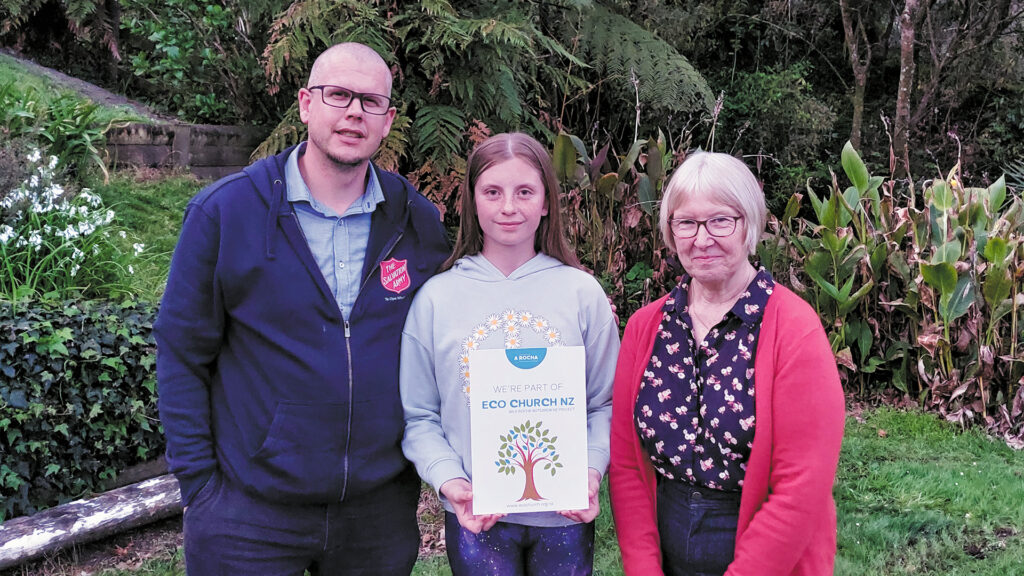
Captain Simon Montgomery, Olivia Montgomery and Dianne Kerr, members of the Whanganui Salvation Army Eco Church group.
A Rocha Aotearoa New Zealand is part of the A Rocha family of Christian environmental conservation organisations currently active in over 20 countries around the world. They focus on environmental science and research, practical nature conservation, environmental education, creation care and advocacy through a variety of programmes. A Rocha is also involved in resourcing, empowering and building relationships among all those wanting to integrate creation care and sustainability into the life of the church in Aotearoa New Zealand through their Eco Church NZ project.
Joining this project means churches across New Zealand are actively caring for God’s earth as an integral part of their mission. An A Rocha statement says:
‘We support church communities, Eco Church teams and Eco Church champions and help them get started and get organised. Being a part of the Eco Church NZ whānau (family) means that we are not journeying on our own. We are part of a bigger mission spanning various parishes, church groups and denominations across Aotearoa New Zealand. We support each other through the celebration of knowledge and stories which inspires others to action. Collectively our actions lead to a measurable reduction in waste, carbon, pollution, energy use and much more, and leads to more sustainable ways of living that restore and enhance our natural environment.’
Captain Simon Montgomery, a member of Salves and corps officer at Whanganui Salvation Army, leads a group of people who are passionate about caring for God’s creation and helping to sustain the environment around them. As a corps (church) they’ve decided to join the A Rocha Eco Church NZ project.
‘I’ve always felt a deep connection to nature,’ says Simon, ‘seeing God actively at work within his creation. My passion for environmental sustainability and creation care has grown over the years as I’ve become more concerned with the impact of humanity upon the creation order. Becoming part of Salves has been encouraging for me to partner with like-minded people who share a desire to practise more sustainable ways of living.’
Simon says that there were several people in the Whanganui Corps who also shared this desire, and so they went on the journey of exploring the Eco Church project. Once they joined the project, A Rocha resourced them with different workbooks to help educate and make action plans for the corps to be more sustainable now and for the future. Their Eco Church working group consists of five people, who meet monthly to discuss the workbooks and suggest ideas for corps involvement.
‘We’ve already improved our recycling onsite,’ says Simon. ‘We have green bins clearly labelled in both kitchens, and since we have educated people about what is recyclable, there has been a noticeable increase in recycled products.’
A group from the corps visited the Whanganui Recycling and Resource Recovery Centre for a lesson on recycling and a tour of the facilities. The feedback was incredibly positive, and the group all learnt something new about recycling, which was encouraging. ‘We’ve decided to not use single-use cups and plates for any of our gatherings, instead we choose to wash the dishes’, says Simon.
In the foyer of the corps, there’s now a space where they share excess produce among their corps family, helping to reduce waste and nurture a spirit of generosity. ‘We’ve been exploring ways to reduce our carbon footprint by ride-sharing and using vehicles less. The corps van is used to pick up a group of people on Sundays,’ says Simon.
It is their intention to become involved in local restoration projects, such as tree planting and clean-up efforts at the beaches, river and parks.
‘Joining the Eco Church movement doesn’t mean you’ve got this all together,’ says Simon. It’s an intention to become more environmentally sustainable in everything we do as a church and a commitment to go on the journey of creation care with other churches, environmental groups and like-minded people.
To learn more about Salves, visit them on Facebook or Instagram: tsa.salves
Ways to Respond
- Pray—God wants to work with us on this, and we can also work alongside others.
- Join other Salvation Army corps in becoming an Eco Church—this will give a framework for action and help you access support from A Rocha Eco Church.
- Cut your carbon emissions—walk to work, bike to church, catch the bus, convert to a hybrid, fly less.
- Do a study on creation care—‘Caring for the Environment’ by Colonel Richard Munn (tinyurl.com/EnvironmentMunn).
- Support Fair Trade—swap out one non-fairtrade item at a time in your weekly shop. Consider purchasing Salvation
Army Hamodava coffee, and ethically-sourced cocoa. - Remember your reusable coffee mug.
- Work with others on local restoration projects.
- Recycle. Reuse. Repurpose. Reduce.
WORDS Captain Rachel Montgomery

